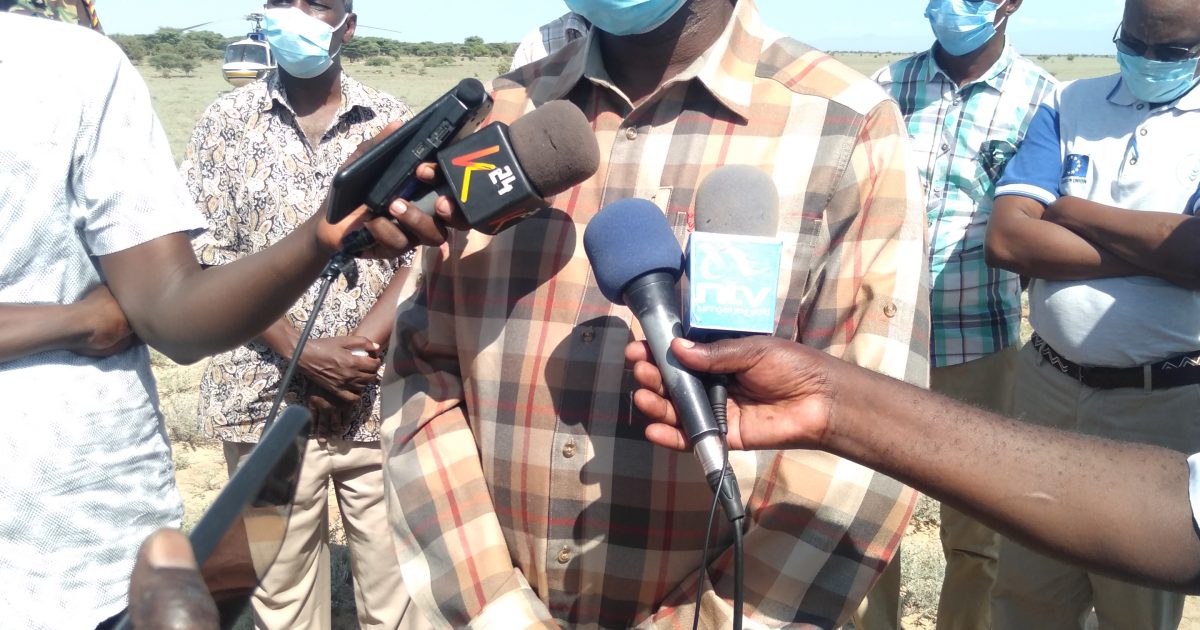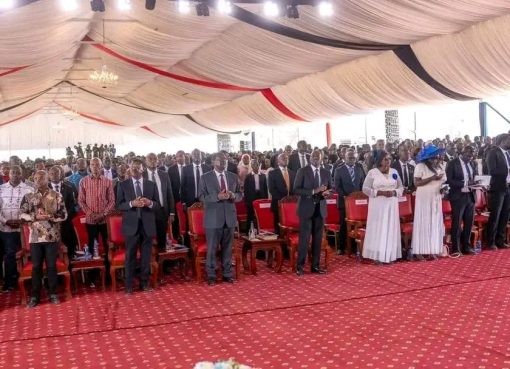The government in conjunction with Food and Agriculture Organization (FAO) has intensified interventions to contain the raging locust menace in the country.
Addressing the press when he toured Turkana County Saturday, Agriculture CS Peter Munya said the ministry will add one more surveillance plane to the county to support another one that has been conducting surveillance works.
The government will also deploy an additional six vehicles and deploy 200 national youth service officers to boost ground spraying of the locust hatchlings that have been spotted in 100 sites in the region.
“We have gradually contained the locust infestation in 27 counties and currently we have made interventions to mitigate infestation in the remaining four counties including Samburu, Isiolo, Turkana and Marsabit within the next two weeks which are still affected,” said Munya.
The government’s campaign to eliminate the desert locusts has received a Sh 4 billion boost from the world Bank, while the National Treasury also already spent Sh500 million in the interventions, added the CS.
“The funds from the World Bank will help in the restitution of livelihoods in the affected areas,” he said
However, Munya said that experts have advised that complete elimination of the menace is not possible because of the dangers lurking in neighbouring countries and vastness of the areas, hence the government has intensified surveillance.
The CS said the rains that have been experienced in various parts of the country have regenerated pastures and helped prevent food insecurity challenge that was looming due to the long period of locust infestation.
“We have engaged the Kenya Red Cross Society and we expect a report on the extent of damage caused by the locust infestation by June 15,” said Munya, adding that so far there was no cause for alarm.
He also reiterated that the government would not import maize saying that only a few traders will be allowed to import the commodity to plug the deficit in the country.
The CS further blamed the county government for levying cess on farm produce on transit, thus delaying food from reaching the markets and causing spoilage of foodstuffs like fish.
“We need to ease that and not focus too much on raising revenue by charging cess on farm produce on transit. We have engaged the chairman of the Council of Governor’s Wycliffe Oparanya and the county’s agriculture committee Muthomi Njuki with a view to sorting out the matter,” added Munya.
By Peter Gitonga
Government intensifies locust infestation interventions





